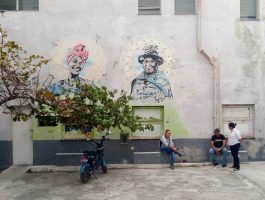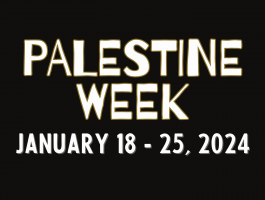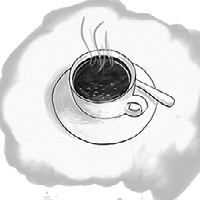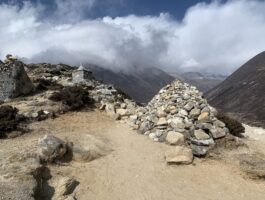Originally published in The New Yorker
May 15, 2012
By: Salman Rushdie

No writer ever really wants to talk about censorship. Writers want to talk about creation, and censorship is anti-creation, negative energy, uncreation, the bringing into being of non-being, or, to use Tom Stoppard’s description of death, “the absence of presence.” Censorship is the thing that stops you doing what you want to do, and what writers want to talk about is what they do, not what stops them doing it. And writers want to talk about how much they get paid, and they want to gossip about other writers and how much they get paid, and they want to complain about critics and publishers, and gripe about politicians, and they want to talk about what they love, the writers they love, the stories and even sentences that have meant something to them, and, finally, they want to talk about their own ideas and their own stories. Their things. The British humorist Paul Jennings, in his brilliant essay on Resistentialism, a spoof of Existentialism, proposed that the world was divided into two categories, “Thing” and “No-Thing,” and suggested that between these two is waged a never-ending war. If writing is Thing, then censorship is No-Thing, and, as King Lear told Cordelia, “Nothing will came of nothing,” or, as Mr. Jennings would have revised Shakespeare, “No-Thing will come of No-Thing. Think again.”
Consider, if you will, the air. Here it is, all around us, plentiful, freely available, and broadly breathable. And yes, I know, it’s not perfectly clean or perfectly pure, but here it nevertheless is, plenty of it, enough for all of us and lots to spare. When breathable air is available so freely and in such quantity, it would be redundant to demand that breathable air be freely provided to all, in sufficient quantity for the needs of all. What you have, you can easily take for granted, and ignore. There’s just no need to make a fuss about it. You breathe the freely available, broadly breathable air, and you get on with your day. The air is not a subject. It is not something that most of us want to discuss.
Imagine, now, that somewhere up there you might find a giant set of faucets, and that the air we breathe flows from those faucets, hot air and cold air and tepid air from some celestial mixer-unit. And imagine that an entity up there, not known to us, or perhaps even known to us, begins on a certain day to turn off the faucets one by one, so that slowly we begin to notice that the available air, still breathable, still free, is thinning. The time comes when we find that we are breathing more heavily, perhaps even gasping for air. By this time, many of us would have begun to protest, to condemn the reduction in the air supply, and to argue loudly for the right to freely available, broadly breathable air. Scarcity, you could say, creates demand.
Liberty is the air we breathe, and we live in a part of the world where, imperfect as the supply is, it is, nevertheless, freely available, at least to those of us who aren’t black youngsters wearing hoodies in Miami, and broadly breathable, unless, of course, we’re women in red states trying to make free choices about our own bodies. Imperfectly free, imperfectly breathable, but when it is breathable and free we don’t need to make a song and dance about it. We take it for granted and get on with our day. And at night, as we fall asleep, we assume we will be free tomorrow, because we were free today.
The creative act requires not only freedom but also this assumption of freedom. If the creative artist worries if he will still be free tomorrow, then he will not be free today. If he is afraid of the consequences of his choice of subject or of his manner of treatment of it, then his choices will not be determined by his talent, but by fear. If we are not confident of our freedom, then we are not free.
And, even worse than that, when censorship intrudes on art, it becomes the subject; the art becomes “censored art,” and that is how the world sees and understands it. The censor labels the work immoral, or blasphemous, or pornographic, or controversial, and those words are forever hung like albatrosses around the necks of those cursed mariners, the censored works. The attack on the work does more than define the work; in a sense, for the general public, it becomes the work. For every reader of “Lady Chatterley’s Lover” or “Tropic of Capricorn,” every viewer of “Last Tango in Paris” or “A Clockwork Orange,” there will be ten, a hundred, a thousand people who “know” those works as excessively filthy, or excessively violent, or both.
The assumption of guilt replaces the assumption of innocence. Why did that Indian Muslim artist have to paint that Hindu goddess in the nude? Couldn’t he have respected her modesty? Why did that Russian writer have his hero fall in love with a nymphet? Couldn’t he have chosen a legally acceptable age? Why did that British playwright depict a sexual assault in a Sikh temple, a gurdwara? Couldn’t the same assault have been removed from holy ground? Why are artists so troublesome? Can’t they just offer us beauty, morality, and a damn good story? Why do artists think, if they behave in this way, that we should be on their side? “And the people all said sit down, sit down you’re rocking the boat / And the devil will drag you under, with a soul so heavy you’ll never float / Sit down, sit down, sit down, sit down, sit down / You’re rocking the boat.”
At its most effective, the censor’s lie actually succeeds in replacing the artist’s truth. That which is censored is thought to have deserved censorship. Boat-rocking is deplored.
Nor is this only so in the world of art. The Ministry of Truth in present-day China has successfully persuaded a very large part of the Chinese public that the heroes of Tiananmen Square were actually villains bent on the destruction of the nation. This is the final victory of the censor: When people, even people who know they are routinely lied to, cease to be able to imagine what is really the case.
Sometimes great, banned works defy the censor’s description and impose themselves on the world—“Ulysses,” “Lolita,” the “Arabian Nights.” Sometimes great and brave artists defy the censors to create marvellous literature underground, as in the case of the samizdat literature of the Soviet Union, or to make subtle films that dodge the edge of the censor’s knife, as in the case of much contemporary Iranian and some Chinese cinema. You will even find people who will give you the argument that censorship is good for artists because it challenges their imagination. This is like arguing that if you cut a man’s arms off you can praise him for learning to write with a pen held between his teeth. Censorship is not good for art, and it is even worse for artists themselves. The work of Ai Weiwei survives; the artist himself has an increasingly difficult life. The poet Ovid was banished to the Black Sea by a displeased Augustus Caesar, and spent the rest of his life in a little hellhole called Tomis, but the poetry of Ovid has outlived the Roman Empire. The poet Mandelstam died in one of Stalin’s labor camps, but the poetry of Mandelstam has outlived the Soviet Union. The poet Lorca was murdered in Spain, by Generalissimo Franco’s goons, but the poetry of Lorca has outlived the fascistic Falange. So perhaps we can argue that art is stronger than the censor, and perhaps it often is. Artists, however, are vulnerable.
In England last week, English PEN protested that the London Book Fair had invited only a bunch of “official,” State-approved writers from China while the voices of at least thirty-five writers jailed by the regime, including Nobel laureate Liu Xiaobo and the political dissident and poet Zhu Yufu, remained silent and ignored. In the United States, every year, religious zealots try to ban writers as disparate as Kurt Vonnegut and J. K. Rowling, an obvious advocate of sorcery and the black arts; to say nothing of poor, God-bothered Charles Darwin, against whom the advocates of intelligent design continue to march. I once wrote, and it still feels true, that the attacks on the theory of evolution in parts of the United States themselves go some way to disproving the theory, demonstrating that natural selection doesn’t always work, or at least not in the Kansas area, and that human beings are capable of evolving backward, too, towards the Missing Link.
Even more serious is the growing acceptance of the don’t-rock-the-boat response to those artists who do rock it, the growing agreement that censorship can be justified when certain interest groups, or genders, or faiths declare themselves affronted by a piece of work. Great art, or, let’s just say, more modestly, original art is never created in the safe middle ground, but always at the edge. Originality is dangerous. It challenges, questions, overturns assumptions, unsettles moral codes, disrespects sacred cows or other such entities. It can be shocking, or ugly, or, to use the catch-all term so beloved of the tabloid press, controversial. And if we believe in liberty, if we want the air we breathe to remain plentiful and breathable, this is the art whose right to exist we must not only defend, but celebrate. Art is not entertainment. At its very best, it’s a revolution.
This piece is drawn from the Arthur Miller Freedom to Write Lecture given by Rushdie, on May 6th, as part of the PEN World Voices Festival.
Read more http://www.newyorker.com/online/blogs/books/2012/05/on-censorship-salman-rushdie.html#ixzz1vLgvzNh0





